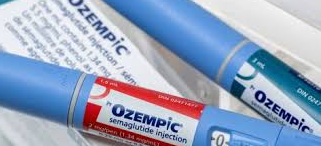
Report shows rising costs to NHS, productivity, and society if screening rates are not improved
A new report warns that the financial burden of breast cancer in the UK could surge to £3.6 billion annually by 2034, representing a nearly 40% increase in the economic impact of the disease. The study, conducted by the think tank Demos and charity Breast Cancer Now, highlights the urgent need for action to improve screening rates and reduce cases of advanced cancer.
Currently, breast cancer costs the UK economy between £2.6 and £2.8 billion annually, with £727 million spent on NHS treatments and screenings. Additionally, productivity losses from patients and carers add up to around £1.8 billion. By 2034, the number of breast cancer cases is expected to increase by 14.8% from 56,343 in 2019 to 64,708.
The report also considers the “true human cost” of breast cancer, estimating that in 2024, these costs—stemming from reduced quality of life, early deaths, and emotional impacts on loved ones—could amount to £17.5 billion.
Baroness Delyth Morgan, CEO of Breast Cancer Now, warned that despite progress in treatment, the disease continues to take a heavy toll on individuals and their families. “Breast cancer is far from being a ‘done deal,’ and failing to act now will have dire consequences,” she said. Morgan emphasized that while early-stage survival rates are high, the outlook for those diagnosed at stage 4 is much bleaker, with only about 26% surviving for more than five years.
One key recommendation from the report is to increase breast cancer screening uptake. Raising participation to 80% could save between £96 million and £111 million by 2034. Currently, only 62.3% of women aged 50 to 71 in England take up their breast screening offer.
In addition to improving screening, the report suggests that more cancer nurse specialists and better support for those returning to work could help lower costs. “These are not new ideas but existing solutions that need to be scaled up,” the study notes.
Lucy Bush from Demos argued that adopting a more preventative healthcare approach could significantly reduce both the human and financial costs of breast cancer. “Shifting towards prevention will reduce the strain on public services and create a healthier population,” Bush said.
The NHS has acknowledged the progress made in breast cancer survival rates and continues to encourage early diagnosis and screening. “We are committed to improving diagnosis and survival rates, which not only benefit patients but also reduce the broader societal costs,” an NHS spokesperson added.










